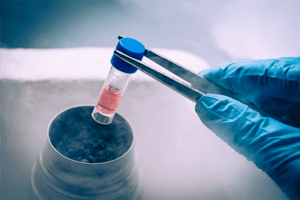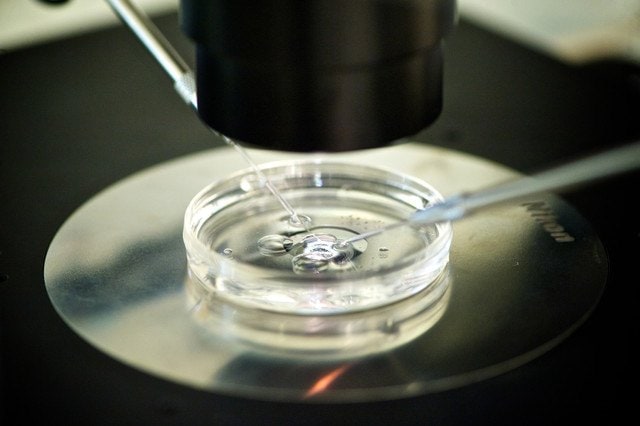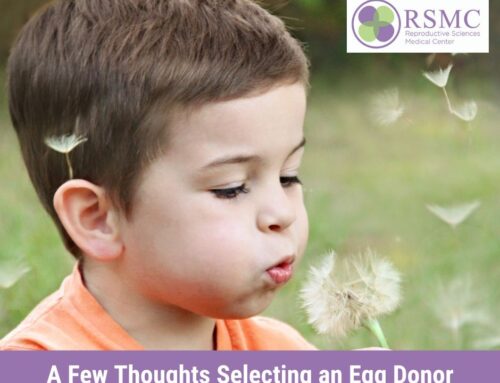This story originally appeared on the FitPregnancy.com website.
I Never Thought It Would Come to This But I Used Donor Eggs to Build My Family

My husband, Paul, and I launched Operation Procreation in perhaps the least romantic spot in the Southern Hemisphere: the windowless room of a $10-a-night hostel in Chile, decorated with faux oak paneling, brown industrial carpeting, a blinding overhead fluorescent light and, on the night table, a statue of the Virgin Mary. Paul was so creeped out by the stained, scratchy bed sheets that as I undressed, he disappeared, fully clothed, into his sleeping bag.
Married one year, we were on one of those last-hurrah vacations—what we expected to be our final chance, before retirement, for a kid-free, carefree, overseas holiday. My monthly window of opportunity landed on a weekend when every hotel room in town was booked; but at age 37, with my biological clock ticking loudly, I would not be deterred. Scratchy sheets or silk, we were going to have sex.
I managed to lure Paul out of his sleeping bag (“We can keep the lights off!” “Remember, I’m almost 38!”), and as we struggled to ignore our surroundings, we laughed nervously, like two novice skydivers about to jump out of an airplane. “Oh my god!” I said. “What if this procreation thing works?” We never thought to ask: What if it doesn’t?
What if it doesn’t?
In every fertility book, I’ve read—and I’ve read plenty—there’s a final chapter called “Other Paths to Parenthood” or “There’s More Than One Road to Motherhood” or something similar. These chapters talk about egg donation and adoption, about grieving the loss of your fertility and accepting a different path. When you’re starting fertility treatment, these are the chapters you avoid. You think they’re for other people—women who began trying to conceive at age 42 (Hey, what did they expect?) or who lost an ovary to cancer (Unfortunately, but at least they have options).
You suspect it would be awful to be in their shoes, but you barely give the scenario a passing thought. Given all the high-tech procedures you’ve heard of—IVF, ICSI, PGD—you’re confident that something will work for you. Maybe not on the first try, but eventually.
At least that’s how my own thought process unfolded. Then one day, a year and a half after our trip to Chile, Paul and I found ourselves in our fertility doctor’s office facing bewildering news: We’d never conceive using my eggs. After four cycles of intrauterine insemination and two miscarriages, we decided to try in-vitro fertilization, but we crashed right out of the starting gate.
All 11 of our embryos, the products of Paul’s sperm and my eggs, had flunked genetic testing. There was no point in transferring any of them to my uterus, the doctor said, and there was no point in trying again. Although I was barely 39, it appeared that my eggs already had exceeded their use-by date.
“I’m sorry,” the doctor said, gently. “I didn’t expect this at all. But you’d be a very good candidate for donor-egg IVF.”
At every stage, Paul and I had been in sync, emotionally, about what to do next, but that changed the morning the embryo transfer was canceled. My sweet redheaded husband had burst into tears, and despite my hugs and assurances that we’d figure something out, he seemed inconsolable. To be continued…
RSMC is a complete fertility center under one roof. We specialize in IVF, especially difficult cases, and have an egg donation center as well as a surrogacy program. For more information please e-mail: info@fertile.com or call 858-436-7186.























